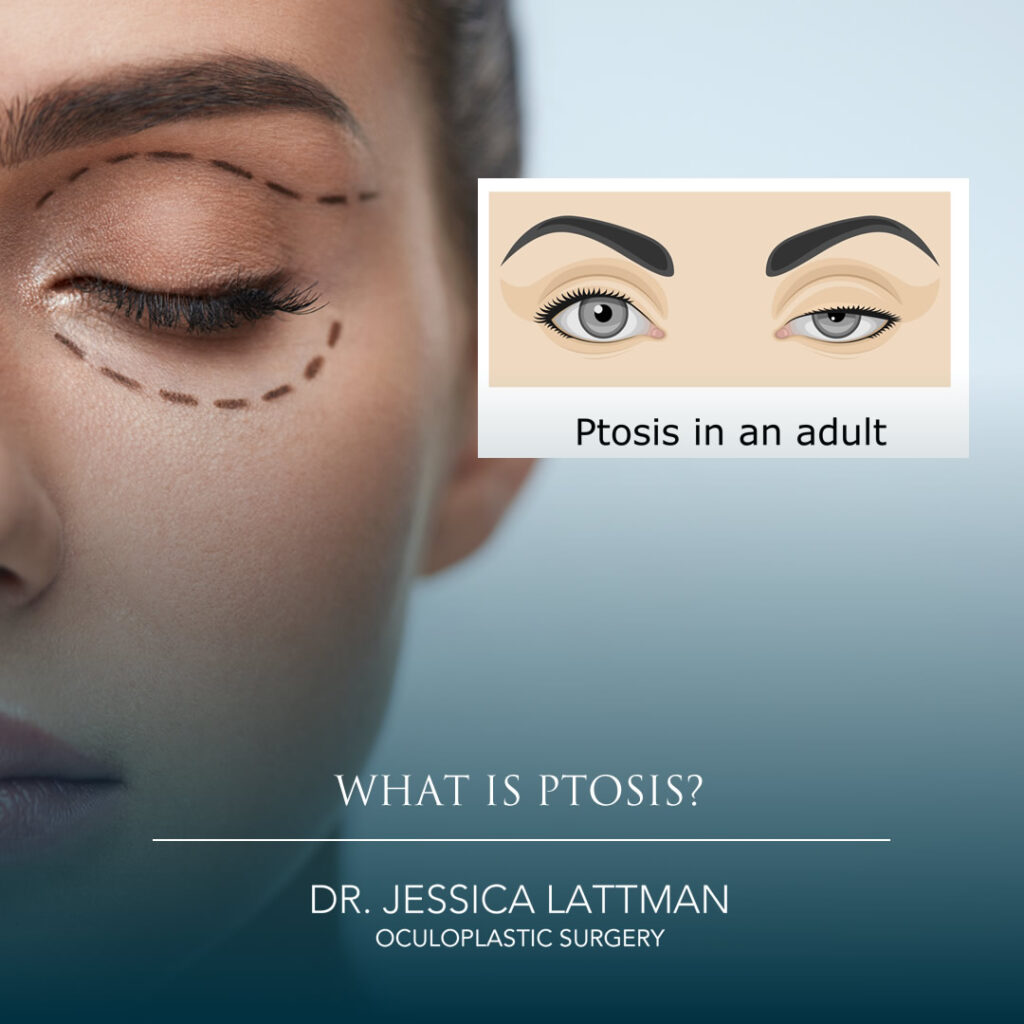Ptosis is a drooping or falling of the upper eyelid. It can affect one or both eyes. The two main categories of ptosis are:
- Congenital
- Acquired
Congenital ptosis is present at birth and occurs when the levator muscle (which lifts the eyelid) does not develop properly. Babies are born with a drooping eyelid. Sometimes there is just a small droop and sometimes the eye barely opens at all. If the lid is blocking the visual axis, then the ptosis must be fixed so normal visual acuity develops.
Acquired ptosis is more common than congenital ptosis. There are 5 types of acquired ptosis. The first is aponeurotic ptosis. In this category of ptosis, the tendon of the levator muscle of the eyelid becomes stretched. This usually happens due to aging or long-term hard contact lens use.
Neurogenic ptosis occurs when there is a problem with the nerve pathway that controls movement of the eyelid muscle. Causes of neurogenic ptosis include myasthenia gravis, third nerve palsy, and Horner syndrome.
In myogenic ptosis, the levator muscle is weakened due to a systemic disorder that causes muscle weakness. These conditions may include chronic progressive external ophthalmoplegia and other types of muscular dystrophy.

If you think that you have ptosis, a full evaluation in the office can diagnose the severity and type. A minor surgical procedure can repair most categories of ptosis. Call us at (212) 832-5456 or request online that we call you back by submitting our online request form here.



